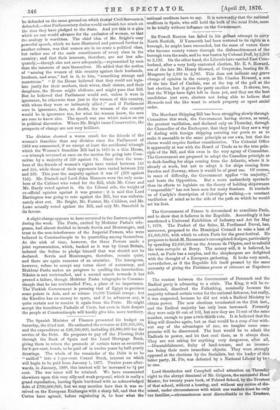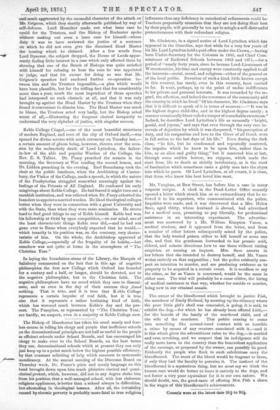Lord Stratheden and Campbell called attention on Thursday night to
the abrupt dismissal of Mr. Grignon, the successful Head Master, for twenty years back, of Foisted School, by the Trustees of that school, without a hearing, and without any notice of dis- missal, under circumstances with which our readers must be only too familiar,—circumstances most discreditable to the Trustees,
and much aggravated by the uncandid character of the attack on Mr. Grignon, which they shortly afterwards published by way of self-defence. Lord Henniker made out what lame case he could for the Trustees, and the Bishop of Rochester spoke without making out even a lame case for himself—whose duty it was to have reviewed the justice of a sentence on which he did not even give the dismissed Head Master the hearing which he claimed. After a few words from Lord Dynevor, the subject dropped, the House of Lords appar- rently feeling little interest in a case which only affected them by showing that one of the Bench of Bishops was quite satisfied with himself for refusing to hear the man he was appointed to judge, and that his excuse for doing so was that Mr. Grignon's speeches had rendered further co-operation be- tween him and the Trustees impossible,—a plea which would have been plausible, but for the trifling fact that for considerably more than a year, much the most imprudent of those speeches had interposed no such obstacle at all, and that it was only brought up against the Head Master by the Trustees when they found it convenient to dismiss him. The Head Alaster was much to blame, the Trustees acted very badly, but the Bishop acted worst of all,—illustrating the frequent clerical incapacity to understand the very alphabet of justice, with singular success.



































 Previous page
Previous page